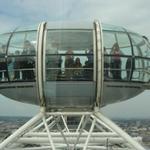 HA42 schrieb:In der vorletzten Markierung von "deer" steht dahinter noch "hunter" und meines Wissens bedeutet das englische Wort "hunter" auf Deutsch "Jäger". Also ergibt "deer hunter" = Hirschjäger.
HA42 schrieb:In der vorletzten Markierung von "deer" steht dahinter noch "hunter" und meines Wissens bedeutet das englische Wort "hunter" auf Deutsch "Jäger". Also ergibt "deer hunter" = Hirschjäger.
Und nachdem letzten "deer" Eintrag kommt dieser Satz.
"The hunter didn't follow the beaten trail and we are now in his steps."
Was auf Deutsch bedeutet: "Der (Hirsch)jäger verfolgte nicht den platt geschlagenen Pfad und wir sind jetzt in seinen Fußstapfen getreten."
Ja, und was ist daran ominös?
 HA42 schrieb am 16.08.2017: Aus den Tagebüchern weiß man, dass sie die Spuren eines ominösen Hirschjägers folgten
HA42 schrieb am 16.08.2017: Aus den Tagebüchern weiß man, dass sie die Spuren eines ominösen Hirschjägers folgten
Mit dem offiziellen Wortlaut aus dem Djatlow Tagebuch vom 31.01.1959 wird es noch weniger suspekter:
Today the weather is slightly worse - the wind (western), snow (apparently with oil) for the sky is absolutely clean.
We left relatively early (about 10 am). We walk along the beaten Mansi ski trail. (Until now, we walked along the Mansi trail, on which a hunter drove a deer not very long ago).
Yesterday we met, apparently, his overnight stay, the deer did not go further, the hunter himself did not go along the notches of the old path, we follow him now.
Today was a surprisingly good overnight stay, warm and dry, despite the low temperature (-18 ° -24 °). Today it is especially difficult to go today. The trace is not visible, we often get off it or go groping. Thus we pass 1.5 - 2 km. at one o'clock.
We are developing new methods for more productive walking. The first drops the backpack and goes 5 minutes, then returns, resting for 10-15 minutes, after catching up with the rest of the group. Thus was born the non-stop way of laying the ski tracks. It is especially difficult for the second one, who is walking along the first ski track, with a backpack. Gradually separated from Auspia, the rise is continuous, but quite smooth. And then they ran out of spruce, a rare birch-tree came. We went to the forest border. The wind is western, the warm piercing, the wind speed is similar to the air speed at the lift of the plane. Nast. Naked places. On the device lobaza even think not to. About 4 hours. It is necessary to choose a lodging for the night. We descend to the south - to the valley of Auspia. This is probably the most snowy place. The wind is small in the snow 1.2 - 2 m thick. Tired, exhausted, they began to spend the night. A few firewood. Sliced raw fir-trees. Bonfire bred on logs, reluctant to dig a hole. We dine right in the tent. Heat. It is difficult to imagine a similar coziness somewhere on the ridge, with a piercing howling wind, a hundred kilometers from populated areas.
DYATLOV.
Die
QUELLEÜbersetzt etwa:
Wir gehen die geschlagene Mansi-Skipiste entlang. (Bis jetzt gingen wir auf dem Mansi-Pfad entlang,
auf dem ein Jäger vor sehr langer Zeit ein Reh fuhr).
Gestern trafen wir uns anscheinend seine Übernachtung, die Hirsche gingen nicht weiter, der Jäger selbst ging nicht auf die Kerben des alten Weges, wir folgen ihm jetzt. Heute war eine überraschend gute Übernachtung, warm und trocken, trotz der niedrigen Temperatur (-18 ° -24 °). Heute ist es heute besonders schwer zu gehen. Die Spur ist nicht sichtbar, wir kommen oft aus oder gehen tasten. So passieren wir 1,5 - 2 km. Pro Stunde .
Die folgten im „Niemandsland“ also erst einem „sledge deer trail“ aka Mansi-Skipiste welche irgendwann für einen Jäger zu Ende war. Der Jäger musste einen anderen Weg nehmen weil seine Hirsche den Mansi-Weg nicht weitergingen, und die Gruppe wählte auch den II. schwer zu gehendenWeg, den der Jäger vor sehr langer Zeit nahm und dessen Spuren noch zum Teil da waren aber eben kaum sichtbar.
(wir kommen oft aus oder gehen tastend. So passieren wir 1,5 - 2 km. Pro Stunde)HA42 schrieb:Könntest Du das bitte auf Deutsch übersetzen?! Den aller letzten Satz aus Deinem Zitat aus deren Tagebuch, was ja im Zusammenhang zu dem steht, welchen Weg sie gegangen sind, damit wir alle wissen womit wir es dann hier zu tun haben.
margaretha schrieb am 18.08.2017:We went along the sledge-deer trail.
HA42 schrieb:Desweiteren kann man erkennen, dass die Fußspuren nicht auf beliebige "Bahnen" verlaufen, sondern alle dicht beieinander sind. Das lässt den Schluss zu, dass sie nicht einzeln jeder für sich in irgendeine beliebige Richtung gelaufen ist, sondern sie sind alle hintereinander bzw. dicht bei einander den Hang runter gegangen.









